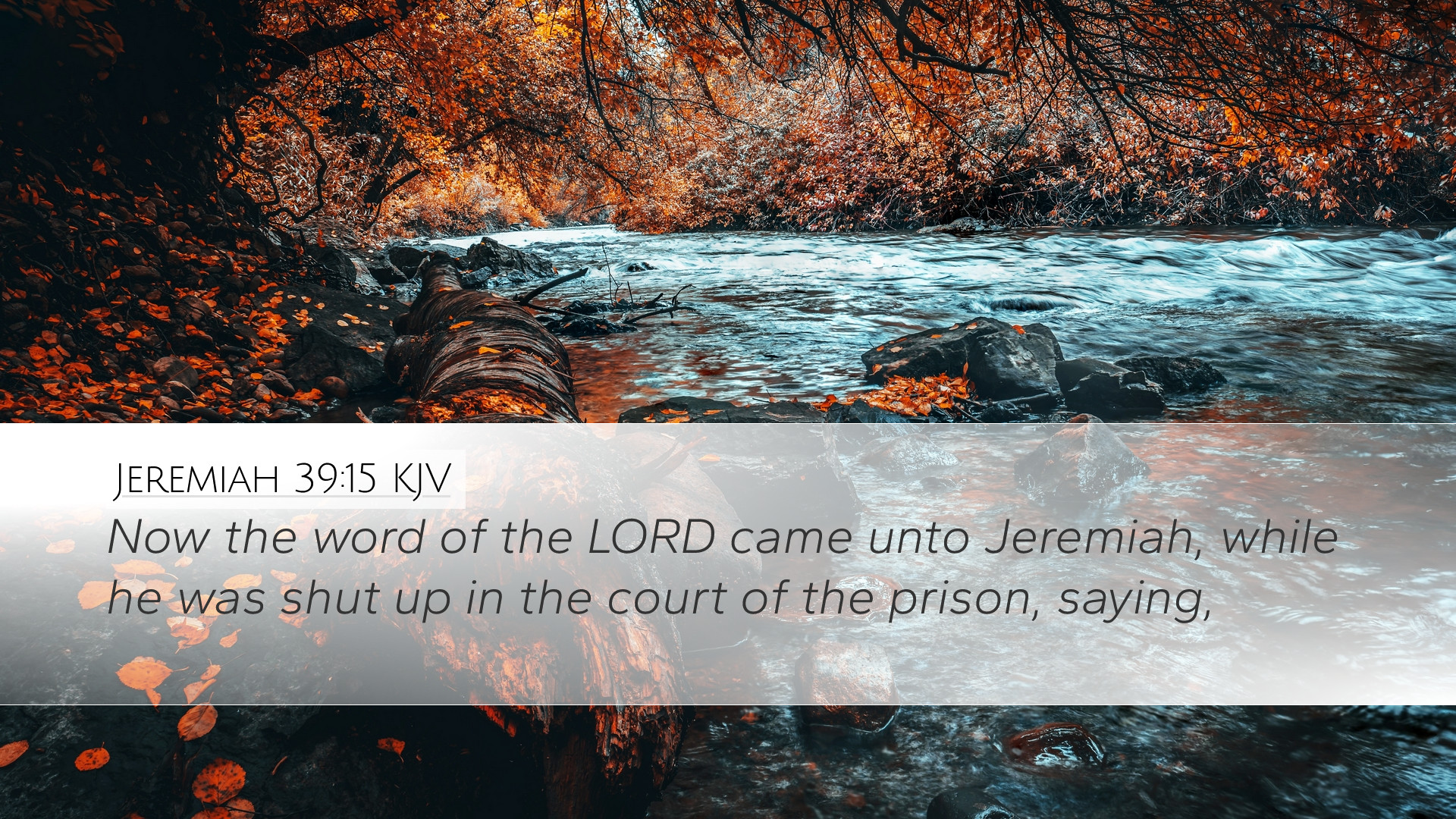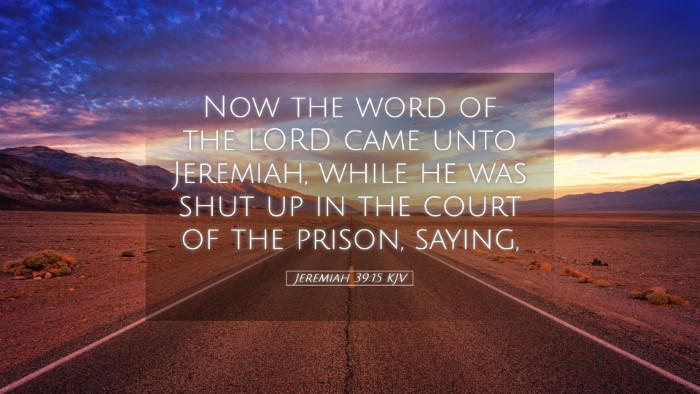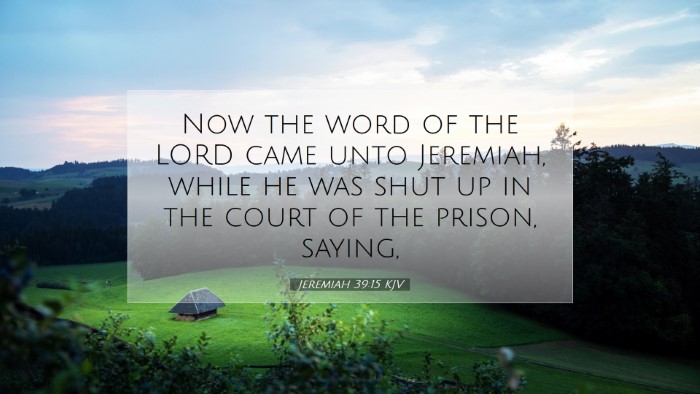Bible Commentary on Jeremiah 39:15
Jeremiah 39:15 states: "The word of the Lord came to Jeremiah while he was shut up in the court of the guard, saying." This verse positions Jeremiah within a specific historical context during the Babylonian siege of Jerusalem, reflecting on themes of divine communication and prophetic使命.
Contextual Background
This passage falls in a tumultuous period, as Jerusalem is besieged, and the people of Judah face impending doom. Scholars note that Jeremiah’s prophecies are not merely warnings but also reflections of God's sovereignty over nations and their leaders. His confinement in the court of the guard emphasizes both his personal suffering and the ongoing rejection of his prophetic voice.
Insights from Matthew Henry
Matthew Henry elucidates that God’s word reaches Jeremiah amidst a time of despair. He emphasizes the significance of God speaking to His prophet even when he appears to be powerless. This instance illustrates God's plan, which is unfurling regardless of human circumstances.
- Divine Intervention: Henry notes that God intervenes in critical moments, showing that although Jeremiah is restricted, God's word is not confined.
- Prophetic Assurance: The knowledge that God is speaking provides reassurance of His commitment to His people, even during dire straits.
Insights from Albert Barnes
Albert Barnes provides a historical lens as he comments on the implications of Jeremiah’s imprisonment. He mentions that the political climate of Jerusalem at the time was chaotic, and Jeremiah’s messages counter societal beliefs.
- Preservation of the Prophet: Barnes highlights that God’s message to Jeremiah signifies divine protection. Despite being imprisoned, the prophet remains an instrument of God’s will.
- The Word's Authority: The tension between prophecy and the prevailing circumstances illustrates that God’s word stands intact against earthly opposition.
Insights from Adam Clarke
Adam Clarke expands on the context, pointing out that the phrase "shut up" indicates a physical limitation but not a spiritual one. Clarke delves into the contrasts of human perceptions vs. divine realities.
- Spiritual Freedom: Clarke emphasizes that, though Jeremiah is imprisoned, he possesses spiritual freedom and a connection to God that cannot be severed.
- Communication of God’s Intent: The act of God speaking during Jeremiah’s confinement symbolizes hope and the continuity of divine promise despite dire circumstances.
Theological Reflections
As we reflect on this verse, several theological themes emerge that are pertinent for pastors, students, and scholars.
- The Nature of Prophecy: The role of the prophet as a vessel for God’s message highlights the ongoing relevance of God’s instructions in challenging times.
- God’s Sovereignty: The control that God maintains over history serves as a reminder of His ultimate authority, offering reassurance to believers that their circumstances are never beyond His reach.
- Hope Amidst Despair: The notion that God communicates with His people even in moments of despair encourages faithfulness and perseverance.
Application for Today
Pastors and church leaders can draw from Jeremiah 39:15 to underscore the importance of hearing and responding to God’s voice, even amid personal trials or societal upheaval. The consistent communication from God reveals His persistent love and unwavering commitment to His people.
- Encouragement in Prayer: It serves as a call to deepen one’s prayer life, attuning oneself to the divine messages amidst life's challenges.
- Community Reminder: The need for the Church to be aware of God's Word as a guiding principle stands ever relevant, especially in times of crisis.
Conclusion
Jeremiah 39:15 encapsulates a vital message about the unassailable nature of God's Word and His unyielding dialogues with humanity. Commentary from esteemed theologians offers rich insights that can aid pastors, students, and theologians in their understanding of God's character and intentions, propelling them toward a more profound faith and practice.


